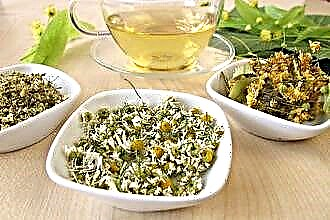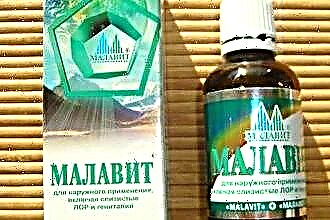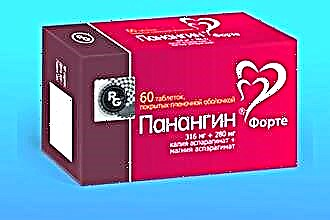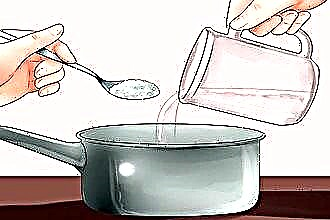Along with drug treatment for maxillary sinusitis, a very important role is played by the timely removal of mucous accumulations from the paranasal sinuses to prevent its stagnation and the formation of pus. Most often this is done with the help of rinsing the nasal cavity, this procedure is used both in hospitals and at home. For best results, it is important to know how to rinse your nose with sinusitis.
Basic rules for preparing for irrigation
 Patients ask themselves how they can rinse their nose well with sinusitis, whether it will harm their health. Ideally, before any manipulations associated with inflammatory processes in the upper respiratory tract, it is better to seek medical advice. In modern medical practice, a wide selection of solutions for rinsing the nose with sinusitis, based on pharmacological preparations or herbal ingredients, is offered.
Patients ask themselves how they can rinse their nose well with sinusitis, whether it will harm their health. Ideally, before any manipulations associated with inflammatory processes in the upper respiratory tract, it is better to seek medical advice. In modern medical practice, a wide selection of solutions for rinsing the nose with sinusitis, based on pharmacological preparations or herbal ingredients, is offered.
In addition, irrigation should be carried out correctly so as not to worsen the patient's condition.
You can ask the doctor to carry out the first lavage in a hospital or clinic and instruct how to do this fairly simple manipulation correctly so that the solution does not get into the ear or windpipe. It is especially important to know this if you have to deal with a sick child.
To obtain the expected effect and prevent pain, the nasal cavity must be prepared for the procedure. Before pouring the medicinal solution, you should make sure that liquid can freely pass through the nasal passage. Therefore, with swelling of soft tissues in the nasal cavity, first, vasoconstrictor sprays or drops are used, then a careful but thorough blowing of excess mucus is performed. When rinsing, the person should be calm so that water flows easily through the air pockets.
Saline solutions
Asking the question of how and how to cleanse the nose with sinusitis at home, you should immediately remember about the simplest and most affordable method of irrigation - saline solution. It can be purchased at a pharmacy, where it is sold under the name saline solution, or you can easily make it yourself at home.
In a glass of warm water, add half a teaspoon of ordinary table salt and stir well so that there are no crystals left. To be sure, you can strain the liquid through a strainer or several layers of gauze to remove coarse mechanical impurities. The sensitivity of the mucous membrane is individual for each person, therefore, if a burning sensation appears during rinsing, then the next time you can take a smaller amount of salt.
 The mucolytic effect of the resulting liquid is improved by adding half a teaspoon of regular baking soda.
The mucolytic effect of the resulting liquid is improved by adding half a teaspoon of regular baking soda.
For more effective evacuation of exudate from the sinuses and the removal of dried crusts, you can use ready-made saline solutions, which are sold in the pharmacy without a prescription. Their advantage is a balanced composition based on sea water with biologically active additives, as well as convenient drainage devices included in the set for the procedure. Several remedies are best known.
"Dolphin"
Complex for irrigation of the nasal cavity, consists of an elastic plastic bottle with a dosing cap and 30 sachets with a medicine. It is prescribed for chronic and acute sinusitis, and you need to continue rinsing even after recovery. Usually the course is designed for 3 months of 2-3 times daily irrigation.
The packet includes:
- sea salt;
- a complex of trace elements (iodine, selenium, zinc, magnesium);
- dry rosehip extract;
- dry licorice extract.
The Dolphin complex has a bactericidal and antiseptic effect, normalizes the functioning of the ciliated epithelium and water-salt balance, activates secretion, regenerates mucous membranes and increases local immunity. It is not recommended to use the device:
- with deformation of the nasal septum;
- with severe nasal congestion;
- with some diseases, such as otitis media, bleeding, allergies, the presence of tumors;
- children under 4 years of age.
"Aqua Maris"
Consists of purified sterile seawater with compounds of magnesium, iodine, sodium, chlorine, selenium and calcium. Reduces the viscosity of the secretion, with prolonged use, normalizes the activity of the goblet cells of the mucous membranes, reduces inflammation and swelling. Helps with sinusitis in a sluggish and acute form, is used as a preventive measure in dry or polluted air. It is produced in the form of drops (for babies) and a spray (from one year of age). Depending on the age, injections are carried out from 2 to 8 times a day. The drug is well tolerated by everyone, allergic reactions are very rare. There are no contraindications for use.
"Aqualor Soft"
Its basis is an isotonic solution of sea water containing ions of potassium, magnesium, sodium, chlorine, zinc, iodine, selenium and iron. The composition is close to the natural fluids of the human body. It is used for irrigation with maxillary sinusitis and after ENT operations. Cleans all parts of the nasal cavity, increases the effectiveness of drugs and reduces the side effects of antibiotics, helps to restore nasal breathing. Can be used for children from 6 months.
Medication solutions
 In a regular home medicine cabinet, you can find products for rinsing the nose with sinusitis. A number of drugs have the necessary characteristics to help cleanse and disinfect the paranasal sinuses:
In a regular home medicine cabinet, you can find products for rinsing the nose with sinusitis. A number of drugs have the necessary characteristics to help cleanse and disinfect the paranasal sinuses:
- Furacilin. A cheap, but very effective agent that has antiparasitic and antimicrobial effects. This allows it to be used for inflammatory diseases with purulent discharge. Furacilin is good because it practically does not have a negative effect on the body, only occasionally local dermatitis can appear. The solution for rinsing the nose is prepared as follows: half of the furacilin tablet is completely diluted in half a liter of boiled warm water. The resulting yellowish liquid can be used to rinse your nose according to the standard scheme four times a day for a week. It is not recommended to store the ready-made solution; it is better to make a new one before each irrigation or buy a ready-made one in the pharmacy. You can not use furacilin for people with individual intolerance to nitrofuran, patients with renal diseases, as well as those who are prone to bleeding and allergic dermatitis.
- Iodine. A well-known inexpensive antimicrobial drug made from seaweed ash kelp or sea water. For irrigation, no more than 1-2 drops of iodine should be dropped into a glass of water in order to prevent iodism (inflammation of the mucous membrane of a non-infectious nature). Other side effects include runny nose and hives. It is impossible to use iodine solution for small children (under 6 years old), pregnant women and patients with pyoderma, furunculosis, nephritis and tuberculosis.
- Dioxidine. It is a powerful medicine and is usually used to kill germs after taking nasal drops and rinsing with salted liquid. It is prescribed for purulent-inflammatory processes in the accessory chambers. Dioxidin fights streptococci, staphylococci, anaerobes, even suppresses bacteria that are resistant to many modern antibiotics. However, such a strong effect also has a downside - side effects such as fever, headaches, cramps and problems with the digestive system.It is possible to somewhat weaken the activity of the active substance (quinoxaline) by taking antihistamines (loratadine, diazolin) a couple of hours before rinsing the nose. Dioxidine should not be used to treat pregnant women, children and kidneys. All lavages are carried out under the supervision of an otolaryngologist and last a maximum of 5 days.
Traditional medicine recipes
In addition to the usual dilutions of salts at home, natural components from animal and plant raw materials are used, which are active against pathogens and have a beneficial effect on the affected tissues. Most of them are immunomodulators and antiseptics:
 Propolis. It helps well in the early stages of the disease. A traditional 0.9% saline solution is prepared, 15 drops of 10% alcohol propolis tincture are injected with a pipette. Symptoms subside after a week of instillation three times a day.
Propolis. It helps well in the early stages of the disease. A traditional 0.9% saline solution is prepared, 15 drops of 10% alcohol propolis tincture are injected with a pipette. Symptoms subside after a week of instillation three times a day.- Chamomile. A tablespoon of dried flowers of this plant is brewed in 250 ml of boiling water, after which it is filtered and cooled. With irrigation with a decoction of chamomile, an analgesic, antiallergic and sedative effect is observed.
- Celandine. A very strong natural antiseptic. Its juice in a concentrated state is poisonous. For the procedure, two drops of freshly squeezed plant juice in a glass of water are enough. With the help of celandine, exudate is liquefied and excreted. This plant is especially appreciated for polypous sinusitis.
- Freshly squeezed vegetable and berry juices. The most popular among the people for sinusitis are juices of onions, carrots, red beets, cranberries, black currants. To avoid discomfort, they are all pre-diluted with water at a concentration of 1: 3. 10 minutes after rinsing with juice of berries or vegetables, you need to blow your nose well, and after another couple of hours rinse your nose with saline or ordinary boiled water.
Various medicinal herbs are brewed in the usual way - a tablespoon to a glass of boiling water.
You can use a decoction of one plant or make a herbal collection, the main thing is that the patient does not have allergies or hypersensitivity to any component of the collection. Before irrigating with decoctions of herbs, it is better to ask a doctor for advice. The following plants are best suited for washing: St. John's wort, oak bark, horsetail, sage, plantain, chamomile, tansy, string. It is recommended to alternate them with each other in case of prolonged use. For example, experts in traditional medicine offer the following scheme: first, pus is removed from the sinuses with an infusion of horsetail, and then the inflammatory process is weakened by collecting from tansy and plantain.
Ready-made pharmaceutical solutions on herbs
If there is no time or desire to tinker with herbs, then you can greatly simplify your life by buying ready-made preparations based on medicinal natural plants at the pharmacy. They are quite inexpensive, but they work well:
 Rotokan, water-alcohol solution. It has a hemostatic and anti-inflammatory effect, regenerates the epithelial layer. The composition includes extracts of liquid calendula, yarrow and chamomile. It is more often used in dentistry, but diluted (a teaspoon per 250 ml of water) will also help with sinusitis. An allergic reaction is possible.
Rotokan, water-alcohol solution. It has a hemostatic and anti-inflammatory effect, regenerates the epithelial layer. The composition includes extracts of liquid calendula, yarrow and chamomile. It is more often used in dentistry, but diluted (a teaspoon per 250 ml of water) will also help with sinusitis. An allergic reaction is possible.- Elekasol, collection in the form of powder in sachets of 2 g. The composition includes: eucalyptus and sage leaves, marigold and chamomile flowers, licorice roots and herb. Antimicrobial agent of plant origin, active against Pseudomonas aeruginosa and staphylococcus. 2 sachets of powder are poured with a glass of boiling water in an enamel or glass container, covered with a lid and insisted for a quarter of an hour. Then the bags are wrung out, the volume of the liquid is brought to 200 ml. When rinsing, the resulting infusion is diluted with the same amount of water. Side effect - allergic reactions.
- Malavit, a solution of minerals and plants. Has shown good results with sinusitis in terms of sanitation of the mucous membranes of the ENT organs. Consists of active compounds of copper and silver, mummy, stone oil, cedar and fir resin, larch gum. The plant component is represented by extracts of roots and herbs of Gorny Altai (peony, calamus, wormwood, echinacea, elecampane, thyme, etc.). In otolaryngology, it is used for rinsing the nose - 7-10 drops of the drug per 100 ml of water. For children under five years of age, a liquid is prepared at the rate of 1 drop per year of life in 100 ml of water. Do not take orally, spit out the liquid after rinsing. Allergic reactions sometimes occur.

 Propolis. It helps well in the early stages of the disease. A traditional 0.9% saline solution is prepared, 15 drops of 10% alcohol propolis tincture are injected with a pipette. Symptoms subside after a week of instillation three times a day.
Propolis. It helps well in the early stages of the disease. A traditional 0.9% saline solution is prepared, 15 drops of 10% alcohol propolis tincture are injected with a pipette. Symptoms subside after a week of instillation three times a day. Rotokan, water-alcohol solution. It has a hemostatic and anti-inflammatory effect, regenerates the epithelial layer. The composition includes extracts of liquid calendula, yarrow and chamomile. It is more often used in dentistry, but diluted (a teaspoon per 250 ml of water) will also help with sinusitis. An allergic reaction is possible.
Rotokan, water-alcohol solution. It has a hemostatic and anti-inflammatory effect, regenerates the epithelial layer. The composition includes extracts of liquid calendula, yarrow and chamomile. It is more often used in dentistry, but diluted (a teaspoon per 250 ml of water) will also help with sinusitis. An allergic reaction is possible.

